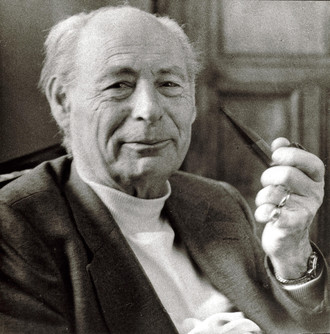Origins
"Medicine of the Person", or rather, "Médecine de la Personne" is the title of a book published in French in 1940, by Dr Paul Tournier, a general practitioner in Geneva. At a period when psychosomatic medicine was in its infancy, he was struck by the fact that the contemporary approach to illness was purely organic, and failed to consider the patient as a whole, with not only a physical dimension but psychological and spiritual dimensions as well.
He invited medical colleagues specialising in a variety of fields and also a number of philosophers to reflect on this with him and organised yearly meetings, which from 1947 onwards were attended by delegates from several countries and became known as "International Meetings of Medicine of the Person".
Paul Tournier died in 1986. His colleagues and friends continued to organise the annual gatherings which allowed both general practitioners and specialists to reflect together on their way of relating to patients and how this affected their practice. The international membership and the fact that the meetings were held in a variety of countries nurtured a cultural openness which would also be of benefit to their work. In addition, national groups developed in Great Britain and in the USA (where the membership also included churchmen).
Medicine of the Person is not just another branch of medicine. It is an attitude towards contact, an approach to patient-care, applicable in all areas. It puts the emphasis on awareness of patients as whole persons, with places in their community and society. Both the organic and the psychological approach are integral parts of Medicine of the Person, as is consideration of the connection between state of health, life events, social insertion and spirituality ("What distinguishes man", said Aristotle, "is his spiritual life").
|

In practice it means a doctor tries to establish a personal contact with his patients which has both therapeutic and preventive effects. In addition to availability on the part of the doctor, it requires training in listening and a profound knowledge of his own person.
The value of the meetings of Medicine of the Person, in addition to the scientific worth of the contributions, lies in the opportunity to share in contemplation without the constraint of religious affiliations, and to meet in small groups to discuss the themes of the presentations and how they resonate within their own selves. At the same time the residential setting facilitates a wealth of personal exchanges.
At a time when understanding of the psychosomatic field was just dawning, Medicine of the Person was very much in the avant-garde, and it remains supremely relevant today, when technical advances in medicine alongside economic constraints might well reduce the "human element" to a biological dysfunction to be corrected by technology.
In the past, participation in sessions of the international group has been restricted mainly to doctors and their spouses, but it seems opportune now to open up this group to a wider membership which would include all carering professionals who share the same concerns.
Madeleine Rüedi-Bettex
|
